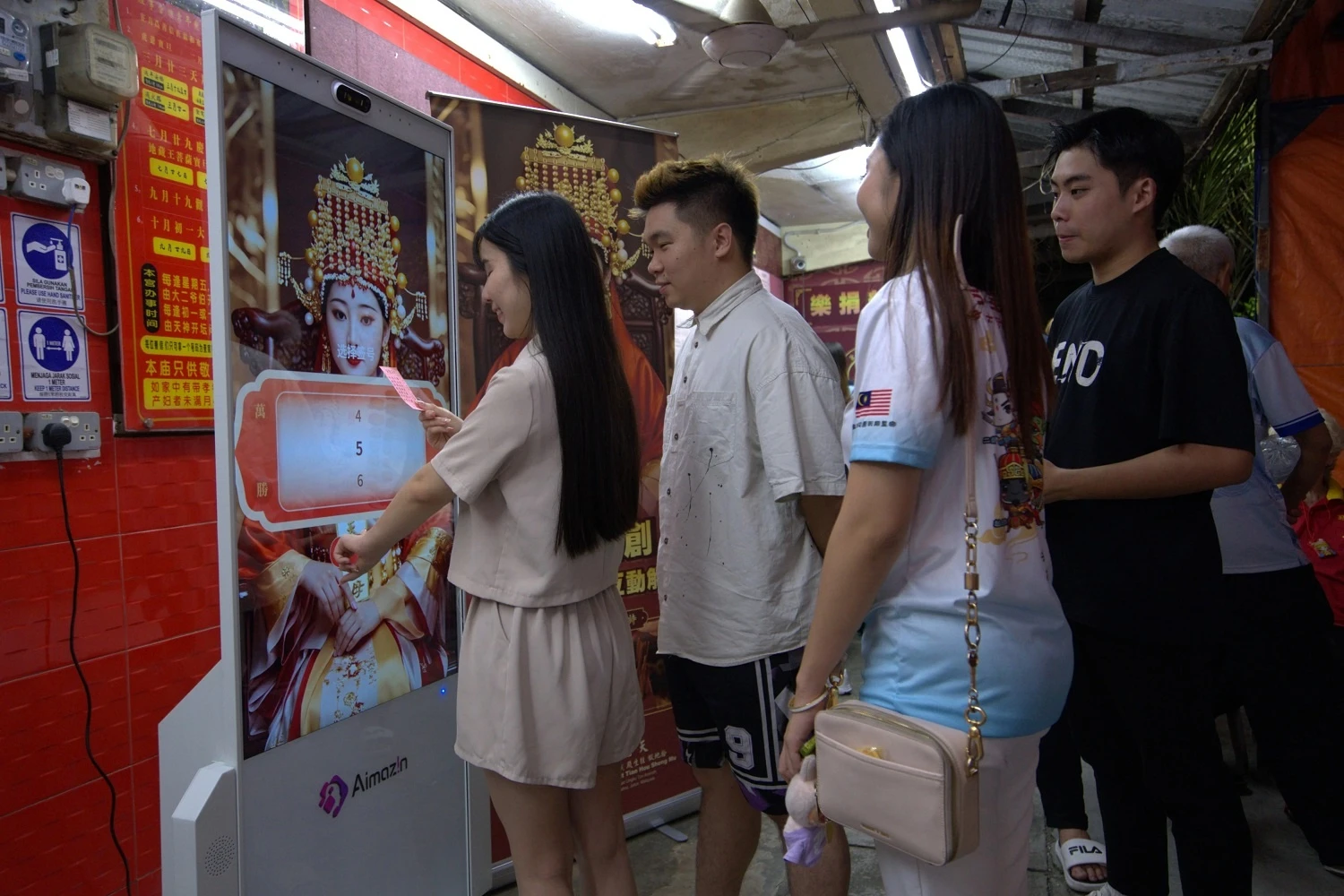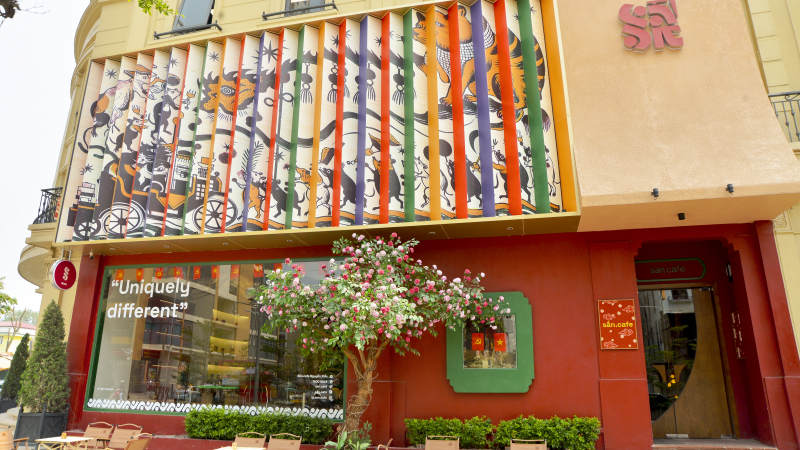The Tianhou Temple, a significant spiritual site located in the southern Malaysian state of Johor, has announced a unique initiative that blends traditional beliefs with cutting-edge technology: the launch of the "AI Mazu statue"—an interactive, digitized version of the goddess Mazu. This event has not only garnered attention from the local community but has also resonated in international media, marking a new step in how religious figures engage and interact with devotees in the digital age.
The image of the Goddess Mazu is vividly recreated on a large screen placed inside the temple. "AI Mazu" is not only captivating in appearance but also makes a strong impression with its natural and friendly communication abilities. With a gentle voice, this artificial intelligence can converse and answer diverse questions from the people, from everyday inquiries like how to attract good luck and secrets to a good night's sleep, to explaining the meaning of lucky cards, providing a novel and interactive spiritual experience.

The Thean Hou Temple in Johor state has unveiled a statue of the Goddess that utilizes artificial intelligence, capable of communicating with and answering questions from visitors.
In a widely released video, "AI Mazu" demonstrated its personalized interaction capabilities by calling a woman who came to pray "my daughter" and kindly advising her to drink some warm water before bed to help her fall into a deep sleep. These thoughtful and intimate pieces of advice made a profound impression, showcasing "AI Mazu's" dedication and empathy for people's anxieties and desires.
Locals and visitors to the Thean Hou Temple can now access and "seek advice" from this AI goddess as part of a traditional ritual, but in a more modern and convenient form. They can express their concerns, ask for blessings, or seek interpretations of omens through fortune-telling, all of which are listened to and responded to attentively by "AI Mazu." Representatives of the Thean Hou Temple proudly assert that this is the world's first digital version of the goddess "AI Mazu," a unique blend of traditional culture and cutting-edge technology.
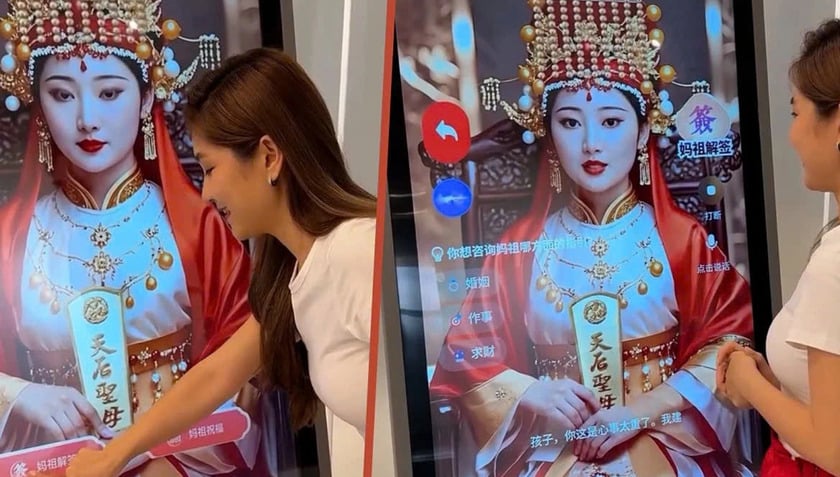
According to a video released by the Thien Hau Temple, the AI statue of Ma To appears on screen as a young woman wearing traditional Chinese clothing, with a face described as resembling actress Liu Yifei.
The creation of "AI Mazu" coincides with the 1,065th anniversary of the birth of Saint Mazu, a historical and spiritual figure with profound influence on the Chinese community worldwide. According to legend, Mazu, whose real name was Lin Mo, was born in 960 on Meizhou Island in Putian City, Fujian Province, southeastern China. She is known for her courageous acts of rescuing people in distress at sea. After her death in a rescue effort, she was revered and worshipped as an all-powerful protector of seafarers and fishermen.
The Mazu belief has spread and become an important part of the spiritual life of Chinese communities around the world, especially in Southeast Asian countries such as Malaysia, Singapore, and Indonesia, where large numbers of people of Chinese descent live and work. The reverence for Mazu is so profound that in some police stations in Fujian Province, they have even established mediation rooms named after Mazu, believing that no one would dare lie in her sacred presence. Furthermore, on Meizhou Island, considered Mazu's birthplace, her statues are even given their own identification cards and phone numbers to facilitate travel to different locations for rituals and prayers.
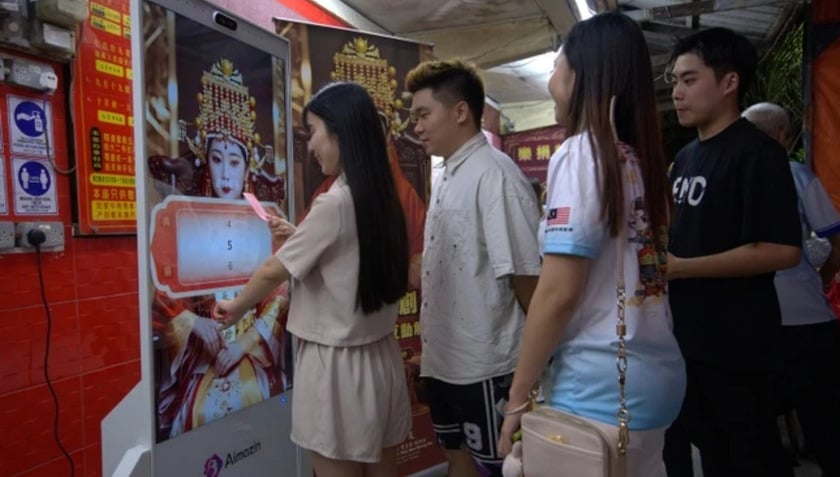
Visitors can ask for blessings, have their fortunes told, and seek her advice on personal concerns.
The "AI Mazu" project is an innovative product of Aimazin, a Malaysian-based technology company specializing in creating virtual figures using artificial intelligence. The application of AI technology to recreate a traditional religious figure like Mazu demonstrates openness and a spirit of innovation in approaching and preserving cultural values.
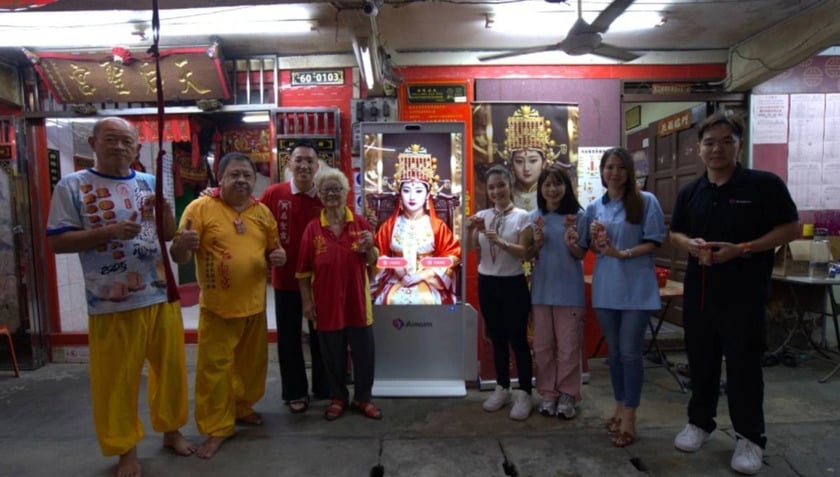
Representatives of the temple stated that this is the world's first statue of the Holy Mother Mazu created using artificial intelligence.
The idea of "digitizing" deities has sparked mixed reactions. On one hand, many believe that these "AI statues" could be an effective bridge to bring young people closer to traditional beliefs, leveraging the familiarity and appeal of technology to convey long-standing cultural values. On the other hand, there are concerns that "modernizing" the image of deities could diminish the inherent sacredness and solemnity of religious rituals.
However, initial feedback from the community has been quite positive. Many people have left comments offering prayers and expressing their delight at the opportunity to "converse" with and receive advice from "AI Mazu." This demonstrates the potential of technology in creating new connections between spirituality and modern life, provided it is applied respectfully and appropriately. The launch of "AI Mazu" at the Thean Hou Temple in Johor, Malaysia, is not just a story about technology and faith, but also a prime example of how traditional values can be preserved and developed in a constantly changing world.

 VI
VI EN
EN



